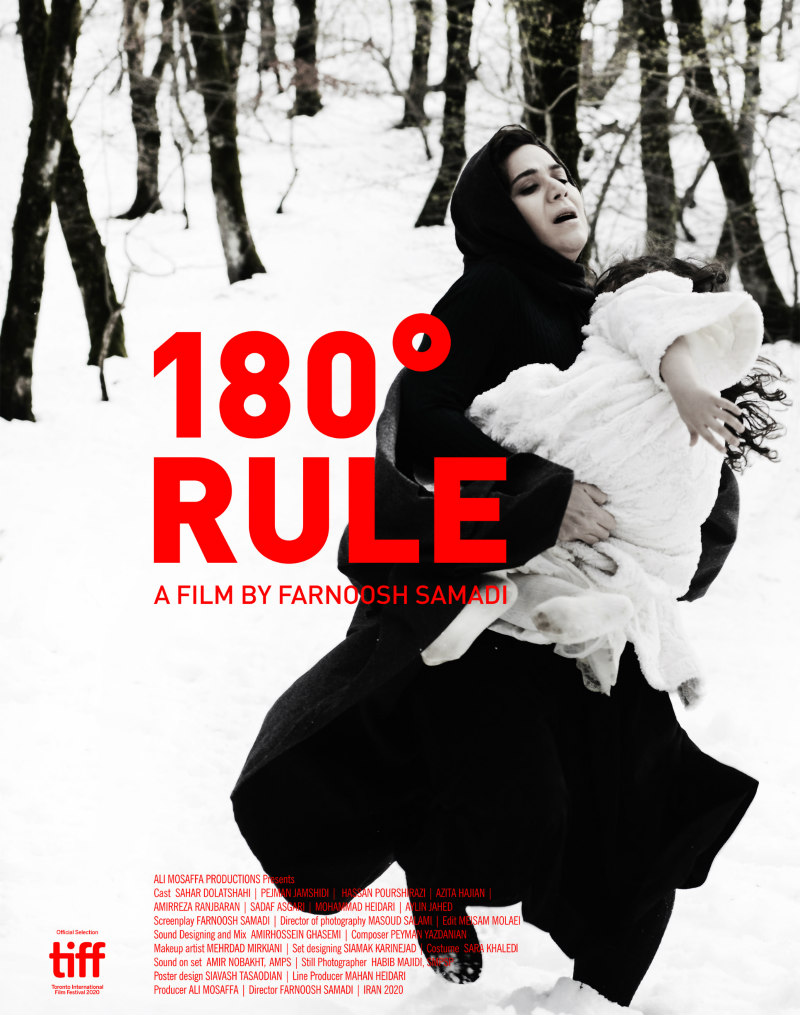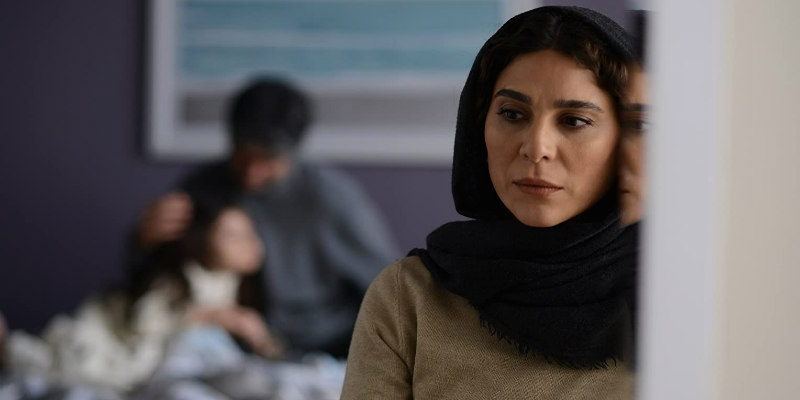
When her husband suddenly forbids her from attending a wedding, an Iranian teacher makes a choice that will place her on a painful path to atonement.
Review by Musanna Ahmed
Directed by: Farnoosh Samadi
Starring: Sadaf Asgari, Sahar Dolatshahi, Azita Hajian, Mohammad Heidari

Searching for “180° Rule film” on Google will make it impossible to find this movie, which is kind of a shame for this pretty good faux-Farhadi Iranian flick.
Farnoosh Samadi has written and directed several shorts before this feature debut, and while this drama sometimes feels like a short idea half-successfully expanded into feature-length, it at least begins with an engaging first act. We follow school teacher Sara (Sahar Sholatsahi, whom I recognise from the nice football drama Permission from earlier this year), who really wants to celebrate a family wedding in the rural north of the country. But her husband Hamed (Pejman Jamshidi) requests her to stay home, as he has a business trip to go to, and demands that she stay at home with their daughter.

Hamed is the archetypal conservative husband, and Sara’s only route to the festivity is to secretly take her daughter on the big day and to explain herself the day after. Overnight following the wedding, something very awful happens to the little girl and Sara is left helpless, unsettled on how to return home and explain the situation to her husband. Much of the second act necessitates reactions from every witness and relative possible, and I haven't seen so much crying in a movie since Beauty and the Dogs.

It may even be based on a true story because, in turn, Samadi is a little uncertain on how to progress with the narrative in the second half. How should one respond to such a terrible event? Samadi opts for a heavy moral dilemma, making her heroine cover the truth from her reactionary husband. The lie enlarges itself as supporting characters endorse Sara’s statement and following Hamed’s independent investigation into what actually transpired that night, it becomes difficult to understand why Sara made such a decision, because it’s clear that any and every outcome would have warranted the same response from Hamed.
At least this was my interpretation, because Samadi stops feeding Sholatsahi with dialogue at a point, putting a cap on further character development and the evolution of the story. Consequently, it feels like the film doesn’t really have a third act - Farhadi would have kept building the emotional stakes, as he did so well in his last feature Everybody Knows - complete with a faint ending. Where the film lets itself down in narrative momentum, though, it makes up for in an abundance of valuable performances and a neorealist style that lends to the film’s verisimilitude.

Sholatsahi is incredibly sympathetic in the lead, even after making questionable choices, and her muted expression in the latter half of the film speaks volumes about the pressure of living in a patriarchal sphere. While more dialogue may have helped, the actress finds a way for her performance to serve the feminist theme. Her screen partner Jamshidi has a very friendly look about him that leads to unexpected benefits. It feels like watching a renowned comedy actor doing drama for the first time, and being genuinely shocked when you realise what he’s capable of selling you on the darkest of dramatic emotions (i.e. a harrowing scene of domestic violence).
180° Rule is good but not great, yet Samadi’s sophomore potential is strong. I can imagine that with better plotting and characterisation, in addition to her existing strengths, she could make a truly great film.

Everybody Knows plays on BFI Player as part of the BFI London Film Festival from October 9th.
